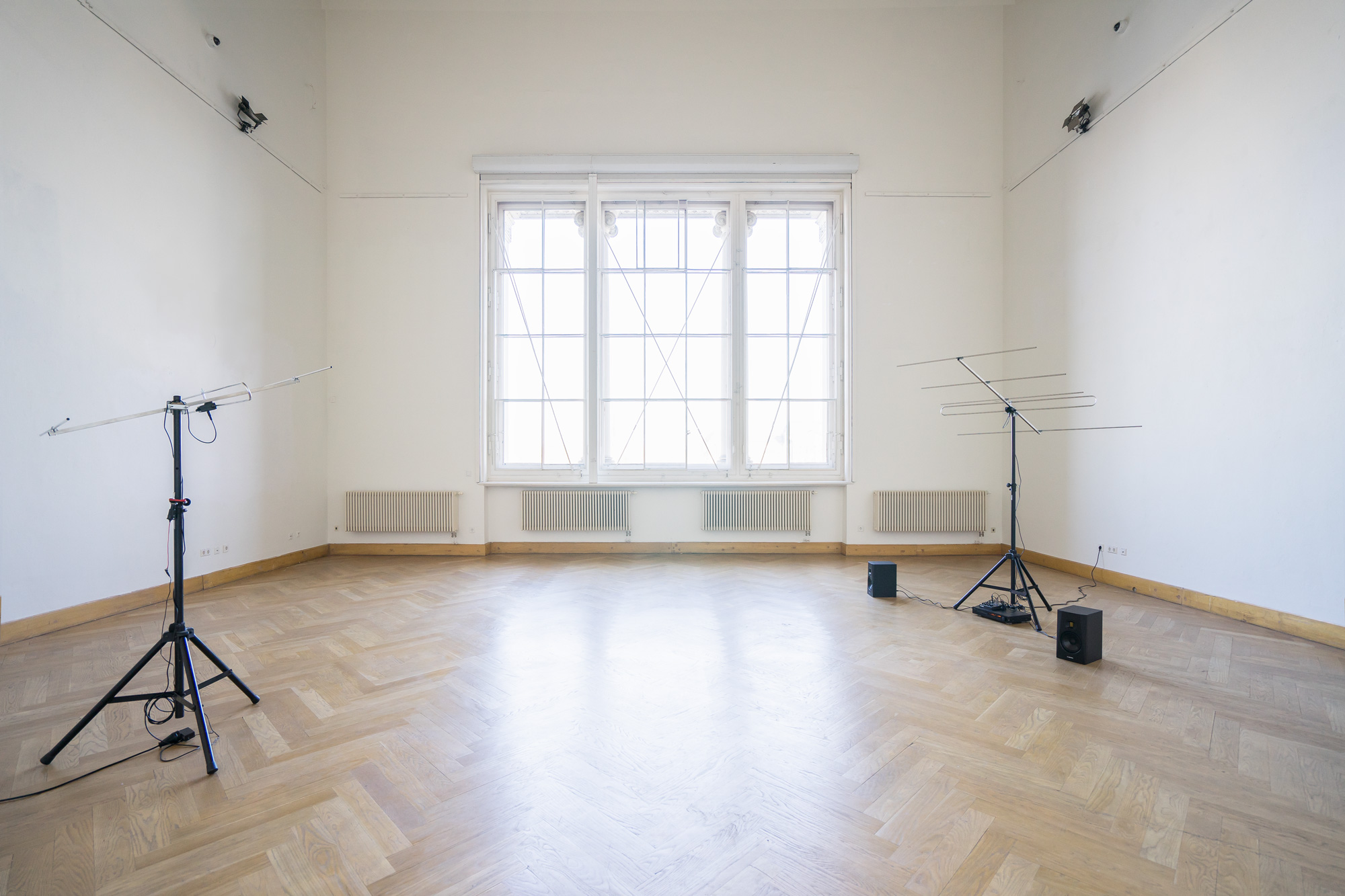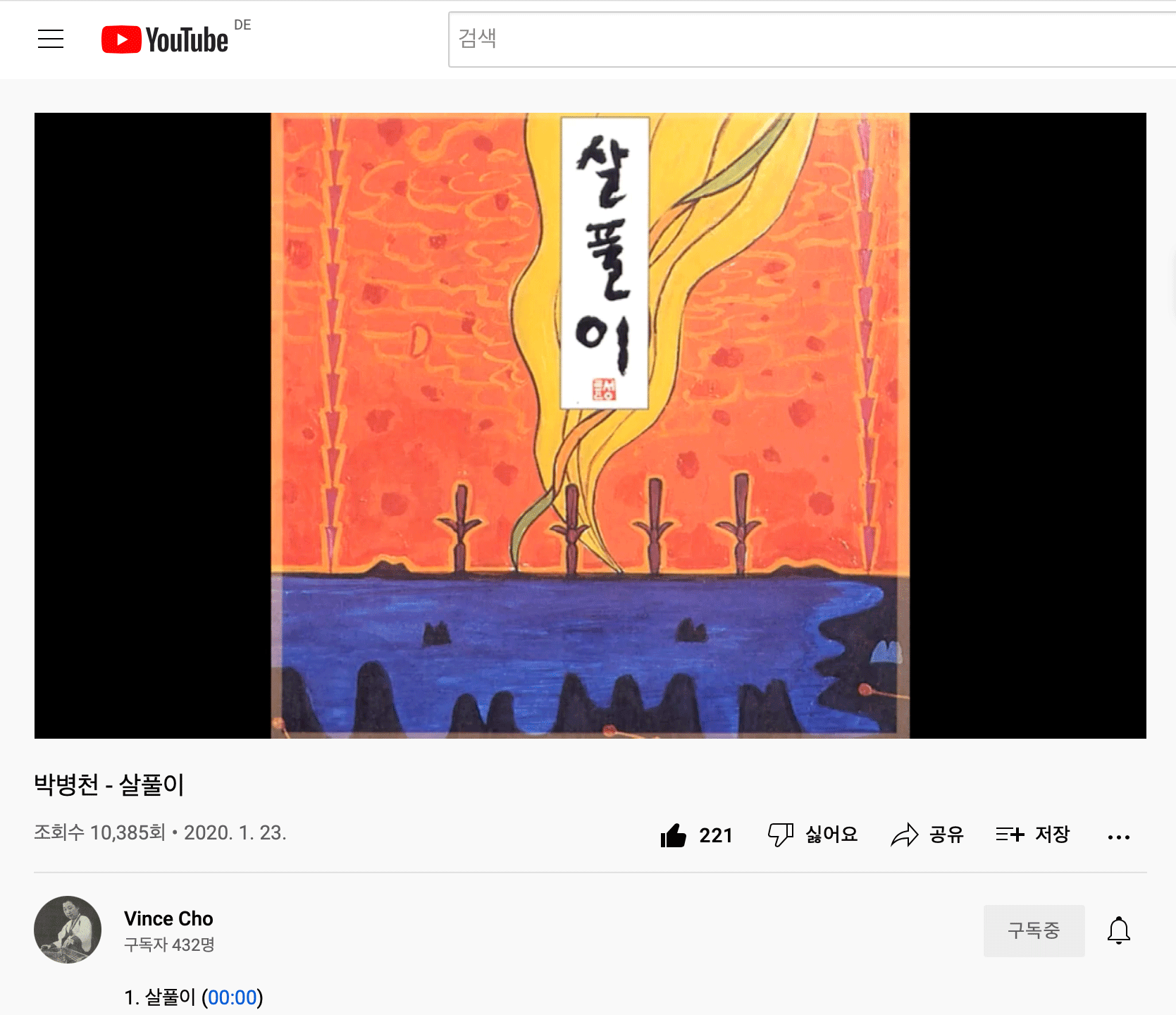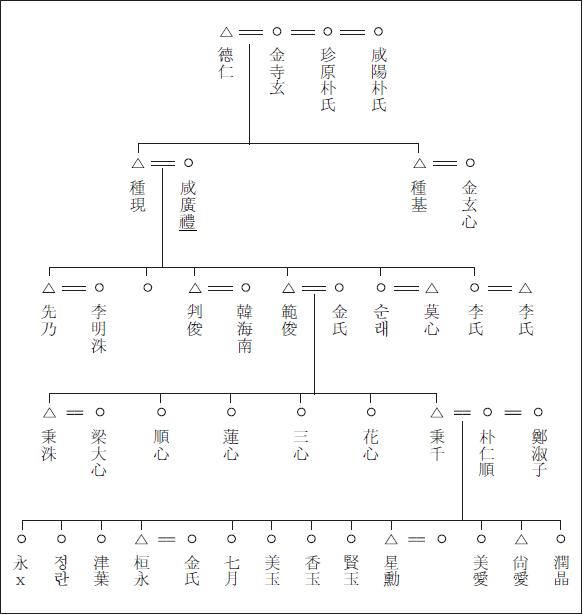Bak Byung Cheon
2021
sound installation with radio transmitter and speakers
00:04:15
“Radio International is a series of radio transmitted sound works that explore the medium of radio and respond to the particular acoustics of the Senatsaal.
Guglielmo Marconi, the pioneer of radio, suggested that sounds once generated never die, they fade but they continue to reverberate as sound waves across the universe. I found this to be an extremely evocative idea and has been the inspiration for the class project Radio International.”
Guglielmo Marconi, the pioneer of radio, suggested that sounds once generated never die, they fade but they continue to reverberate as sound waves across the universe. I found this to be an extremely evocative idea and has been the inspiration for the class project Radio International.”
-Susan Philipsz





‘Bak Byung Cheon’ is the name of a holder of National Intangible Cultural Heritage and a shaman performer who lived in South Korea. He was known as a Master of Jindo Purification Rite (shamanistic ritual for the dead). He was also a professor of KARTs(Korea National University of Arts), a pioneer of contemporary folk art, and a performance artist who won many national and international prizes for his performance.
This sound piece is a shortened version of the live recordings of Salpuli(/’sɑːpuːl.i/)* Album. The recording contains 6 different Salpuli types in a combination of different instruments and partner/chore singers. Salpuli is a term for Korean folklore music rhythm that implicates the art of music and performance that derived from a shamanistic ritual to prevent or relieve evil and misfortune.
During the Corona pandemic, artist explored the territory between physical and beyond-physical languages in the art further. A live-recorded sound of voices and instruments transmits the shamanistic energy of the music piece, fills its invisible body into the exhibition space, and spread out as a wave into the universe.
This sound piece is a shortened version of the live recordings of Salpuli(/’sɑːpuːl.i/)* Album. The recording contains 6 different Salpuli types in a combination of different instruments and partner/chore singers. Salpuli is a term for Korean folklore music rhythm that implicates the art of music and performance that derived from a shamanistic ritual to prevent or relieve evil and misfortune.
During the Corona pandemic, artist explored the territory between physical and beyond-physical languages in the art further. A live-recorded sound of voices and instruments transmits the shamanistic energy of the music piece, fills its invisible body into the exhibition space, and spread out as a wave into the universe.


